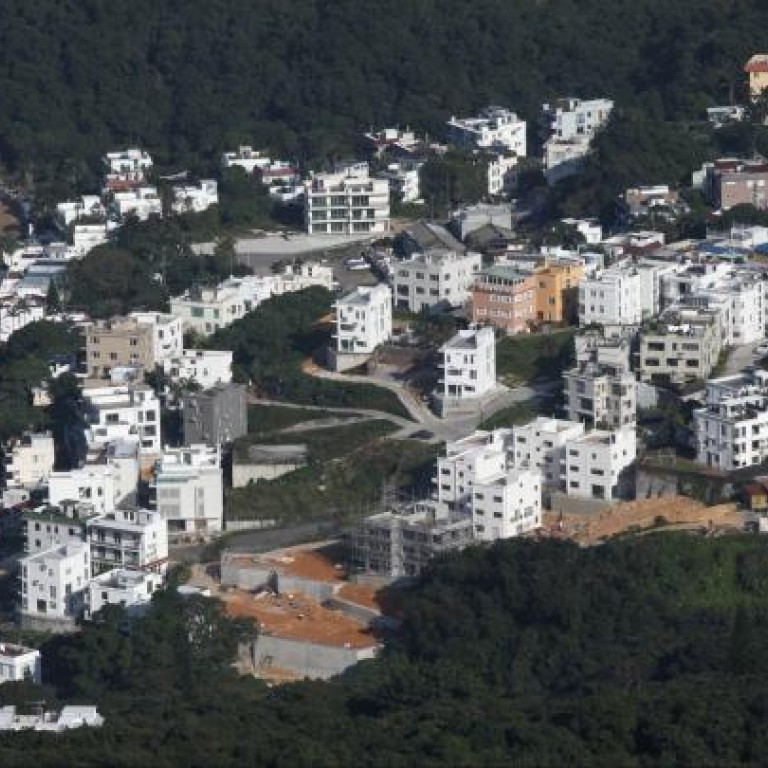
Hong Kong's property market could not thrive without our core freedoms
Albert Cheng says the Leung administration appears intent on undermining Hong Kong's core values, most notably the rule of law
Hong Kong's property prices will remain high and continue to rise because of the government's land policy and the surplus funds in the market.
But the ultimate cause of these sky-high prices is our strong foundation of prosperity and stability, and our enduring core values - our rule of law, and our freedoms and human rights.
All these factors have made Hong Kong one of the world's most liveable cities and raised the value of our land.
Immediately after the global financial crisis, Beijing launched a stimulus package estimated at 4 trillion yuan (about HK$4.5 trillion at exchange rates then) to fuel domestic demand and boost the slowing mainland economy. As a result, the economy began its rapid growth, enabling a new, wealthy elite to rise.
The appreciating value of the renminbi then spurred a flood of mainland money into the Hong Kong property market, further pushing up prices.
Judging by the usable floor space in many Hong Kong properties and other practical factors such as air quality alone, it's ridiculous that the prices of our luxury apartments are so much more expensive than those in neighbouring Shenzhen.
So, in fact, our property prices reflect the successful implementation of the principle of "one country, two systems". Under this system, Hong Kong has remained a bastion of economic freedom. It is a free society that's advancing towards democracy. This is why a Shenzhen luxury apartment is worth HK$5,000 per sq ft at the most while a Hong Kong equivalent can fetch at least six times that amount.
However, since taking office in July, Chief Executive Leung Chun-ying has been eroding the city's core values and moral standards, which are essential to our long-term stability and success, and which help our real estate market thrive.
Former chief executive Tung Chee-hwa's fatal campaign to build 85,000 flats a year left thousands of owners in negative equity in 1997. Today, what Leung is doing is worse.
One of Leung's first tasks after he took office was to push ahead with the introduction of moral and national education in schools, despite strong public opposition. The new curriculum, which has since been shelved, was obviously meant as a brainwashing exercise.
Under Leung, too, our freedom of speech and press freedom have suffered. DBC Radio, a private radio station, was forced out of business because of its anti-government stance. One can only imagine what kind of control is being applied to RTHK.
But worst of all is the threat to our rule of law.
The first person to lead the attack was former secretary for justice Elsie Leung Oi-sie, who openly criticised the legal profession in Hong Kong, including judges, saying they knew little about China's national affairs. She claimed they lacked an understanding of the relationship between Hong Kong and Beijing, which she said had given rise to mistakes in some rulings. She added that the Basic Law should serve as the foundation of Hong Kong's legal system.
Elsie Leung's harmful comments were widely criticised by the legal profession but the meddling didn't stop there. The new director of the central government's liaison office in Hong Kong, Zhang Xiaoming , also stressed that the central government has the absolute right to interpret the Basic Law.
In other words, they are saying that judicial independence is not absolute. When it comes to the policy of "one country, two systems", one country will always prevail.
It's this kind of political atmosphere that caused former Court of Final Appeal judge Kemal Bokhary to warn of the threat to the city's rule of law.
Bokhary was spot on. Justice Secretary Rimsky Yuen Kwok-keung recently suggested that the city's top court seek legal clarification from Beijing about a previous interpretation of residency laws. This will affect permanent residency in relation to foreign domestic helpers and children born in Hong Kong to mainland parents.
Yuen has acted in total disregard of judicial independence.
The reality is that "two systems" will always come under "one country". The idea of "one country, two systems" and "Hong Kong people ruling Hong Kong" is only a pipe dream.

